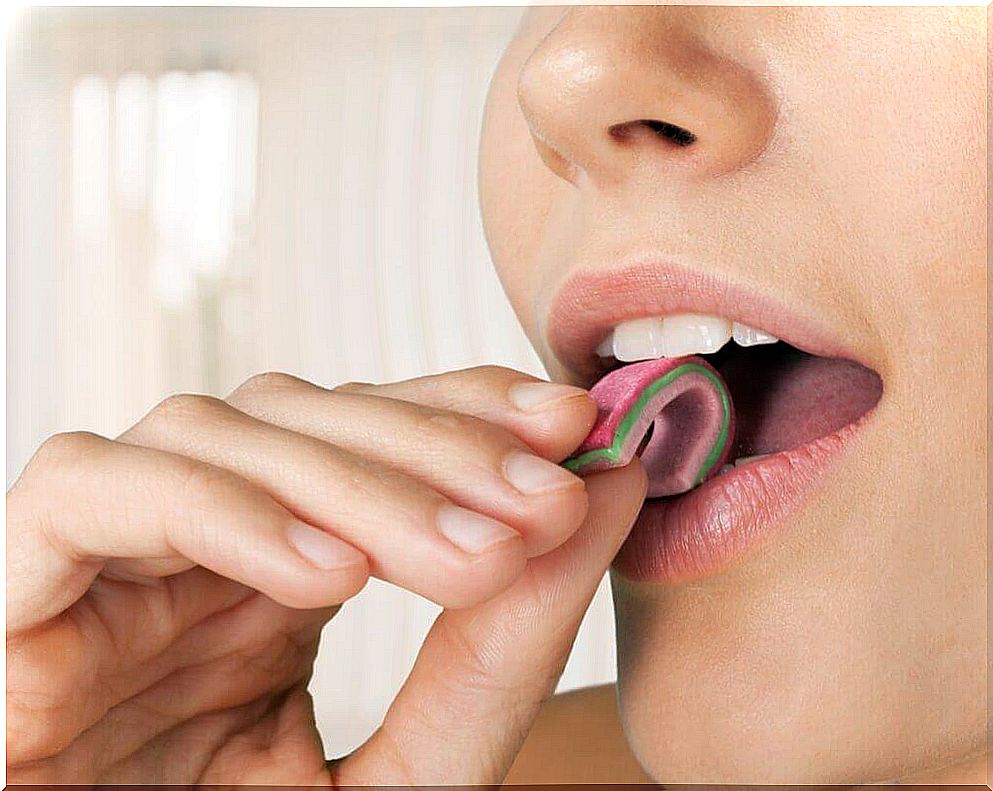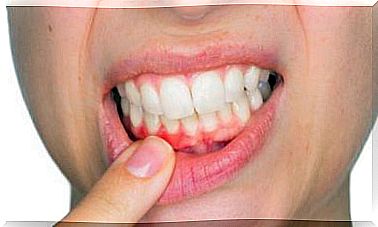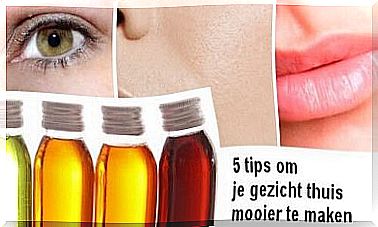What Happens To Your Body When You Chew Gum?

Chewing a piece of gum can seem harmless. However, this is not entirely true. The purpose of this article is not to cause panic, but rather to create awareness about what happens to your body when you chew gum. We often pick up a piece of gum when we are stressed, hungry, or simply out of habit.
If you chew gum, the sweet flavors and firm texture can be addictive. That is why in this article we are going to go through the pros and cons of chewing gum every day.
Chewing gum: good or bad?
Chewing gum is not harmful if you brush your teeth after chewing it. If you take good care of your oral hygiene, there’s no reason to think it’s bad. Chewing gum helps many people to relax, to seek distraction and to avoid stress. It can also help with an afternoon dip. Let’s take a closer look at this.
The benefits of chewing gum
1. Better concentration

Chewing gum changes the levels of cortisol in your saliva. The amount of this stress hormone in your body decreases by approximately 16% when you chew gum.
2. It reduces your appetite
It is said that chewing gum can play a trick on your stomach that will make you no longer feel the need to eat constantly. This is especially beneficial when it comes to avoiding foods that are low in nutritional value, such as sweets and soft drinks.
3. Say goodbye to heartburn

Chewing gum stimulates the production of saliva. This allows food and drink to move more easily through the esophagus. As a result, the body can more easily neutralize the acids that pass through the esophagus.
Flavors such as peppermint, mint and eucalyptus are particularly recommended. Fruit flavors can be unpleasant because they can give you stomach pain.
Disadvantages of Chewing Gum
1. Consuming too much sugar can lead to obesity
Like other candies, some chewing gums also contain refined sugar, additives and other chemical components. This can make it an unhealthy sweet treat that, if eaten regularly, can lead to overeating foods with little nutritional value.
2. Watch out for aspartame

Aspartame is a sweetener used in sugar-free chewing gum. This ingredient contains phenylalanine, a substance that is harmful to individuals with phenylketonuria, an inherited condition that can lead to mental retardation.
3. A Dangerous Laxative
Sugar-free gum contains sorbitol, a laxative that, if used in excess, can cause chronic diarrhea and abdominal pain. Jurgen Bauditz, a German gastroenterologist, recommends eating no more than five grams of sortibtol per week.
4. Jaw Pain

Chewing gum hard can lead to problems closing your jaws properly. This happens when the temporomandibular joint (the joint you use to open and close your mouth) gets worn out
5. Cavities, Plaque and Other Problems
Sugar from chewing gum can stick to your teeth, causing bacteria to build up. This can lead to cavities, plaque and other problems with your oral hygiene.
Dentists therefore advise not to chew chewing gum. If you do choose to do this, make sure you brush your teeth right after you throw away your gum.
6. It contains ingredients derived from sheep

Chewing gum contains lanolin and this comes from sheep wool. It is a waxy substance that keeps your chewing gum soft. There is no evidence that it is bad for your health, but the contrary cannot be proven either.
Keep in mind that chewing gum can be good for you if you know how to take advantage of its benefits. However, dieticians will always advise you not to chew too much gum. They also recommend that you be aware of the risks if you do not take precautions.
Remember that in the end, only you are the one who decides how to proceed with this. Candy can be placed in front of you, but you decide if and how you are going to ‘use’ it.









